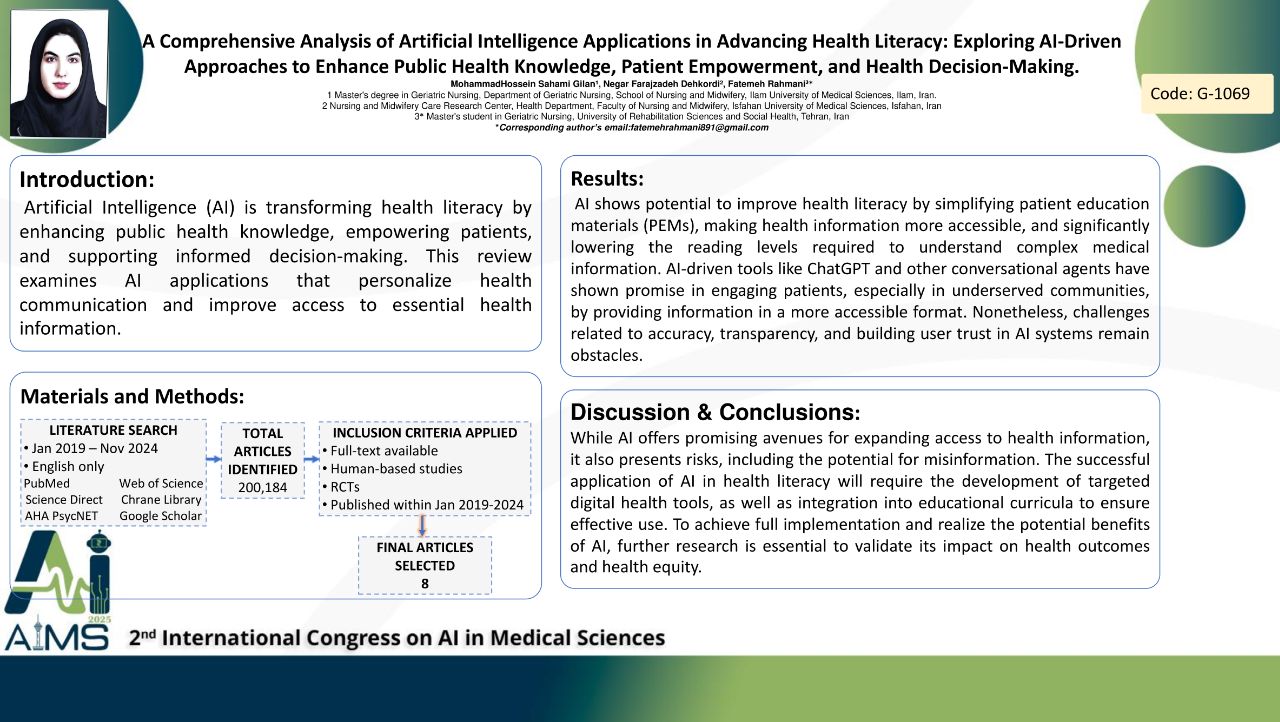تجزیه و تحلیل جامع کاربردهای هوش مصنوعی در پیشرفت سواد سلامت: بررسی رویکردهای مبتنی بر هوش مصنوعی برای افزایش دانش بهداشت عمومی، توانمندسازی بیماران و تصمیمگیری سلامت
کد: G-1069
نویسندگان: محمد حسین سهامی گیلان , نگار فرج زاده دهکردی , Fatemeh Rahmani * ℗
زمان بندی: زمان بندی نشده!
برچسب: سیاست گذاری، قانون گذاری و مدیریت سلامت در حوزه هوش مصنوعی
دانلود: دانلود پوستر
خلاصه مقاله:
خلاصه مقاله
Background and aims: Artificial Intelligence (AI) is transforming health literacy by enhancing public health knowledge, empowering patients, and supporting informed decision-making. This review examines AI applications that personalize health communication and improve access to essential health information. Method: This review systematically selected English-language articles from January 2019 to November 2024. Using keywords such as Health Literacy, Artificial Intelligence, Knowledge Acquisition, and Computer Vision Systems, the search covered databases like PubMed, Web of Science, Science Direct, Cochrane Library, AHA PsycNET, and Google Scholar. A total of 200,184 articles were initially identified. After applying inclusion criteria, such as full-text availability, publication date, RCTs, and human-focused studies, 8 articles were selected for review. Results: AI shows potential to improve health literacy by simplifying patient education materials (PEMs), making health information more accessible, and significantly lowering the reading levels required to understand complex medical information. AI-driven tools like ChatGPT and other conversational agents have shown promise in engaging patients, especially in underserved communities, by providing information in a more accessible format. Nonetheless, challenges related to accuracy, transparency, and building user trust in AI systems remain obstacles. Conclusion: While AI offers promising avenues for expanding access to health information, it also presents risks, including the potential for misinformation. The successful application of AI in health literacy will require the development of targeted digital health tools, as well as integration into educational curricula to ensure effective use. To achieve full implementation and realize the potential benefits of AI, further research is essential to validate its impact on health outcomes and health equity.
کلمات کلیدی
Health literacy, Health Knowledge, Artificial Intelligence,
